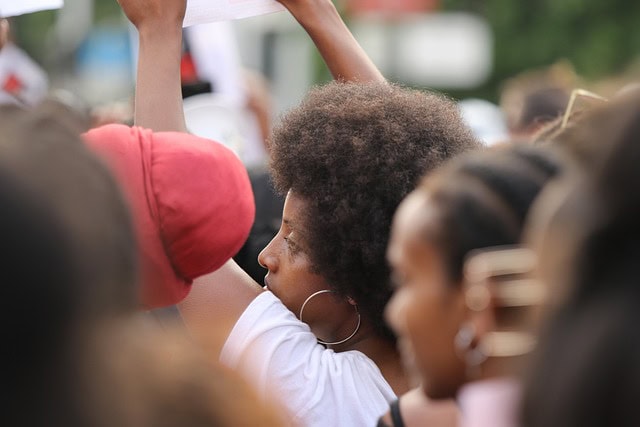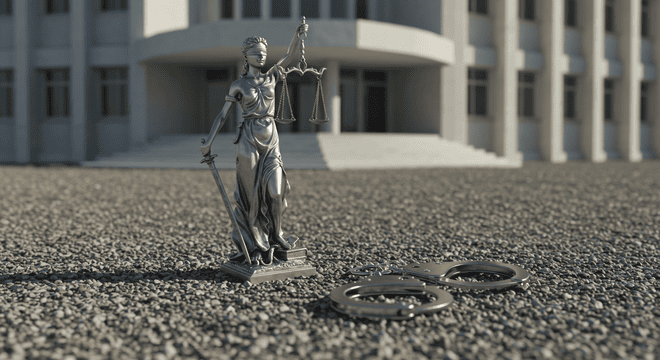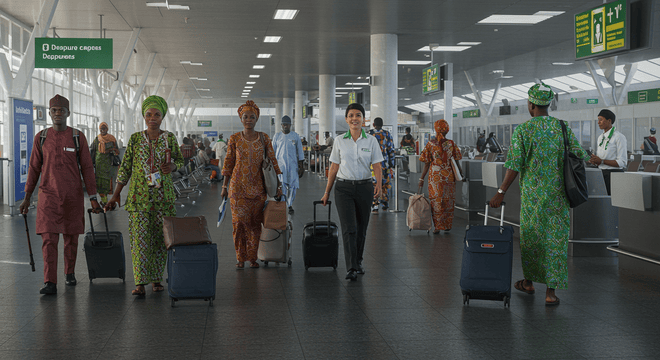
The Right to Protest and Freedom of Expression in Nigeria
Introduction
Nigeria, a nation marked by its diverse culture and dynamic political landscape, has experienced numerous protests over the years. These protests are often driven by citizens’ desire to express their discontent and demand change. The right to protest and freedom of expression are fundamental human rights, enshrined in various legal instruments and judicial decisions within Nigeria. This article explores these rights, referencing relevant laws, judicial decisions, and historical incidences of protest in Nigeria.
Since gaining independence in 1960, Nigeria’s legal framework and the exercise of the right to protest and freedom of expression have undergone significant evolution. This journey reflects the country’s complex political history, marked by periods of military rule and democratic governance.
Legal Framework for the Right to Protest and Freedom of Expression
The Constitution of the Federal Republic of Nigeria 1999 (as amended)
The primary legal instrument guaranteeing the right to protest and freedom of expression in contemporary Nigeria is the Constitution. Specifically:
- Section 39(1): This section ensures the right to freedom of expression and the press. It states, “Every person shall be entitled to freedom of expression, including freedom to hold opinions and to receive and impart ideas and information without interference.”
- Section 40: This section guarantees the right to peaceful assembly and association. It provides, “Every person shall be entitled to assemble freely and associate with other persons, and in particular, he may form or belong to any political party, trade union, or any other association for the protection of his interests.”
African Charter on Human and Peoples’ Rights (Ratification and Enforcement) Act
Nigeria has domesticated the African Charter on Human and Peoples’ Rights, which further reinforces these rights. Article 9 of the Charter protects the right to receive information and express opinions, while Article 11 guarantees the right to assemble freely with others.
Historical Evolution of Rights (1960-Present)
Post-Independence Era (1960-1966)
Upon independence, Nigeria inherited the British colonial legal system, which included restrictive laws on assembly and expression. The 1960 Independence Constitution and later the 1963 Republican Constitution provided for fundamental human rights, including freedom of expression and assembly. However, these rights were often constrained by colonial-era laws such as the Public Order Act, which required police permits for public gatherings.
Military Rule and Curtailment of Rights (1966-1999)
The military coups of 1966 ushered in an era of authoritarian rule, significantly curtailing civil liberties, including the right to protest and freedom of expression.
- Military Decrees: Successive military regimes promulgated decrees that restricted these freedoms. Notable among these was Decree No. 2 of 1984, which allowed for indefinite detention without trial, and Decree No. 4 of 1984, which curtailed press freedom by criminalizing the publication of information considered embarrassing to the government.
- Public Order Act Enforcement: During this period, the Public Order Act was strictly enforced, often used to suppress dissent and prevent public demonstrations. Protests were frequently met with brutal force, leading to widespread human rights abuses.
Transition to Democracy (1999-Present)
The return to civilian rule in 1999 marked a turning point for civil liberties in Nigeria. The 1999 Constitution, which remains in force, enshrined fundamental human rights more robustly.
Judicial Decisions Upholding Rights
The judiciary has played a critical role in interpreting and affirming these constitutional rights. Nigerian courts have played a crucial role in upholding and protecting the rights of protest and peaceful assembly. There are key judicial decisions that have reinforced these fundamental freedoms.
Landmark Judicial Decisions
- All Nigeria Peoples Party (ANPP) v. Inspector-General of Police (2006)
One of the most significant cases regarding the right to protest is ANPP v. IGP. In this case, the All Nigeria Peoples Party (ANPP) organized a rally to protest the results of the 2003 general elections. The police disrupted the rally, citing a lack of permit. The ANPP challenged this action, arguing that requiring a permit violated their constitutional rights.
The Federal High Court ruled in favor of the ANPP, stating that the requirement for police permits for public protests was unconstitutional. Justice Chinyere declared:
“The Public Order Act, in so far as it requires the issuance of police permit as a condition precedent to the holding of rallies or processions, is inconsistent with Section 40 of the Constitution and to that extent, it is null and void.”
This landmark decision affirmed that citizens do not need police permits to exercise their right to peaceful assembly.
- Inspector-General of Police v. All Nigeria Peoples Party (2008)
Following the 2006 decision, the police appealed the ruling. However, the Court of Appeal upheld the lower court’s decision. The appellate court emphasized that the Public Order Act should not be used to stifle the constitutional rights of citizens. The judgment reinforced the position that police interference in peaceful protests, based on permit requirements, was unconstitutional.
Impact and Significance
These judicial decisions have far-reaching implications for the protection of human rights in Nigeria. They reaffirm that:
- No Permits Required: Citizens do not need police permits to organize and participate in peaceful protests and assemblies.
- Limits on Police Power: The police cannot arbitrarily disrupt or suppress peaceful protests, as doing so would violate constitutional rights.
- Judicial Protection: The judiciary serves as a crucial check on executive and law enforcement actions that infringe on citizens’ rights.
Historical Incidences of Protest
Nigerians have frequently taken to the streets to demand change, protest against injustices, and push for better governance. These protests, often driven by a combination of economic, political, and social factors, have shaped the nation’s history and continue to influence its future. Here, we explore some of the most significant incidences of protest in Nigeria’s history.
The Aba Women’s Riot (1929)
One of the earliest and most significant protests in Nigeria’s colonial history is the Aba Women’s Riot, also known as the Aba Women’s War. In November 1929, thousands of Igbo women took to the streets in the southeastern towns of Aba, Calabar, and Owerri to protest against the British colonial administration’s policies, particularly the imposition of taxes on market women. The women, armed with symbolic weapons and chanting war songs, demanded the removal of Warrant Chiefs and the abolition of taxation. The protests were met with violent repression by the colonial authorities, resulting in the deaths of at least 50 women. The Aba Women’s Riot remains a symbol of early resistance against colonial rule in Nigeria.
The Enugu Coal Miners Strike (1949)
The Enugu Coal Miners Strike of 1949 is another landmark in Nigeria’s history of labor protests. The strike was sparked by the poor working conditions and low wages of coal miners in the Enugu coalfields. The miners, organized under the leadership of the Nigeria Union of Mine Workers, demanded better pay and working conditions. The protest escalated when the colonial authorities called in the police to disperse the striking miners, resulting in the shooting and killing of 21 miners. The Enugu Coal Miners Strike highlighted the struggles of Nigerian workers under colonial exploitation and set the stage for future labor movements in the country.
The “Ali Must Go” Protests (1978)
The “Ali Must Go” protests of 1978 were led by Nigerian students against the military government’s decision to increase tuition fees in universities. The protests were named after the then-Federal Commissioner for Education, Colonel Ahmadu Ali, who implemented the unpopular policy. Students from various universities across the country mobilized and organized demonstrations demanding the reversal of the fee hike and the resignation of Colonel Ali. The protests were met with violent crackdowns by the military government, resulting in several deaths and numerous injuries. The “Ali Must Go” protests marked a significant moment in Nigeria’s history, showcasing the power of student activism in challenging government policies.
The June 12 Protests (1993)
The annulment of the June 12, 1993, presidential election by the military government of General Ibrahim Babangida triggered widespread protests across Nigeria. The election, which was widely regarded as the freest and fairest in Nigeria’s history, was won by Chief Moshood Kashimawo Olawale Abiola. However, the military annulled the results, citing alleged irregularities. This move sparked nationwide protests and civil unrest, with pro-democracy activists demanding the reinstatement of Abiola as the rightful winner. The June 12 protests, which saw significant participation from various segments of society, eventually led to the end of military rule and the restoration of democratic governance in Nigeria in 1999.
The Occupy Nigeria Movement (2012)
In January 2012, Nigeria witnessed one of its largest protests in recent history, known as the Occupy Nigeria movement. The protests were sparked by the government’s decision to remove fuel subsidies, leading to a sharp increase in the price of petrol and a subsequent rise in the cost of living. Nigerians from all walks of life took to the streets in major cities, including Lagos, Abuja, and Kano, to demand the reinstatement of the subsidies and broader economic reforms. The protests were marked by mass rallies, sit-ins, and strikes, bringing the country to a standstill. The Occupy Nigeria movement forced the government to partially reinstate the subsidies and opened up a national dialogue on economic and political reforms.
The #EndSARS Protests (2020)
The #EndSARS protests of 2020 were a groundbreaking movement against police brutality in Nigeria. The protests were triggered by widespread allegations of abuse, extortion, and extrajudicial killings by the Special Anti-Robbery Squad (SARS), a unit of the Nigerian police. What began as online activism quickly transformed into mass street protests across the country, with young Nigerians leading the charge. The protesters demanded the disbandment of SARS, justice for victims of police brutality, and comprehensive police reforms. The government’s response included the announcement of the disbandment of SARS and the establishment of judicial panels to investigate abuses. However, the protests were marred by the tragic events of October 20, 2020, when the military allegedly opened fire on peaceful protesters at the Lekki Toll Gate in Lagos, resulting in multiple casualties. The #EndSARS protests highlighted the power of youth-led activism and the ongoing struggles for justice and accountability in Nigeria.
Contemporary Developments and Challenges
In recent years, Nigeria has seen a complex interplay of legal, social, and political dynamics that continue to shape the right to protest and freedom of expression.
Legislative and Policy Initiatives
- Hate Speech and Social Media Bills: In response to the increasing use of social media for mobilization, the Nigerian government has introduced bills aimed at regulating online speech. The proposed Hate Speech Bill and Social Media Bill have sparked significant controversy and debate. Critics argue that these bills, if passed, could be used to stifle dissent and curtail freedom of expression.
- Judicial Panels of Inquiry: Following the #EndSARS protests, various states set up judicial panels to investigate cases of police brutality and human rights abuses. These panels have provided a platform for victims to seek justice and have recommended various reforms. However, the implementation of these recommendations remains a challenge.
Ongoing Challenges
- Government Crackdowns: Despite legal protections, the Nigerian government has occasionally resorted to crackdowns on protests. Instances of police and military intervention in peaceful assemblies raise concerns about the commitment to upholding constitutional rights.
- Judicial Independence: The independence of the judiciary is crucial for the protection of human rights. However, there are concerns about political interference in the judicial process, which can undermine the ability of the courts to effectively safeguard the right to protest and freedom of expression.
- Civil Society Activism: Civil society organizations continue to play a vital role in advocating for human rights in Nigeria. However, they often face harassment, intimidation, and legal challenges from state authorities. Ensuring a conducive environment for civil society activism is essential for the protection and promotion of fundamental rights.
- Youth Engagement: The active participation of Nigerian youth in protests and advocacy efforts is a positive development. However, addressing the underlying socio-economic issues that drive youth discontent, such as unemployment and lack of opportunities, remains a critical challenge.
The Role of Technology
The digital age has transformed the landscape of protests and freedom of expression in Nigeria. Social media platforms have become powerful tools for mobilization, raising awareness, and documenting abuses. However, the government’s efforts to regulate online speech pose a new frontier in the struggle for digital rights.
International Influence and Advocacy
International organizations and foreign governments have increasingly taken interest in the state of human rights in Nigeria. Advocacy and pressure from the international community can play a role in holding the Nigerian government accountable for upholding the rights to protest and freedom of expression.
Conclusion
These judicial decisions and historical protests underscore the dynamic nature of the right to protest and freedom of expression in Nigeria. They highlight the critical role of the judiciary in upholding constitutional rights and the persistent efforts of Nigerian citizens to exercise their fundamental freedoms in the face of challenges. The evolution of these rights reflects Nigeria’s broader struggle for democracy, human rights, and social justice.
Related Posts

High-Profile Prosecutions in Nigeria (1999–2025): A Comprehensive Analysis of Law, Politics, Trends, and the Quest for Credible Accountability

Airline and Passenger Conduct in Nigerian Aviation: Rights, Remedies, and the Law
